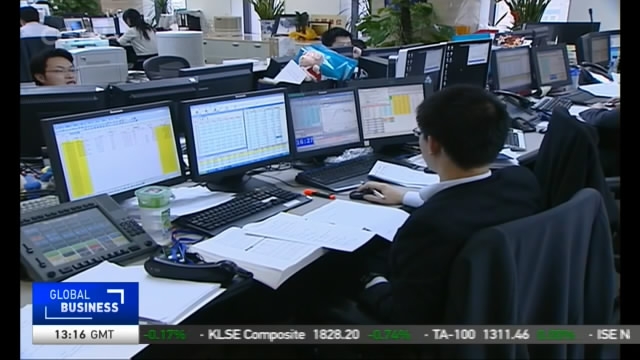
21:51, 07-May-2018
China Economy: April Forex reserves fall to $3.125 trln
02:04

Looking at China's economy now. Fresh data shows that China's foreign exchange reserves fell more than expected as they hit a five-month low in April. But China's foreign exchange regulator said the drop was small and the country's cross-border capital flows remain stable.
Data from the People's Bank of China on Monday showed that foreign reserves fell $17.97 billion in April to $3.125 trillion. That was the lowest level since November 2017 and compared with a rise of $8.34 billion in March.
The State Administration of Foreign Exchange said the fall in non-dollar currencies against the U.S. dollar and corrections in asset prices led to the small drop in reserves in April.
Some analysts said that a stronger U.S. dollar versus other currencies was expected to depress the value of China's dollar-denominated reserves.
LIAN PING, CHIEF ECONOMIST BANK OF COMMUNICATIONS "Dollar bond yields have recently risen sharply, and its prices have fallen. A certain amount of China's foreign reserves' investment is dollar bonds, so the price change will also cause the devaluation of the reserve assets."
WANG YOUXIN, RESEARCHER BOC INSTITUTE OF INTERNATIONAL FINANCE "The dollar index rose 2 percent last month and brought down non-dollar currencies. It is the main reason for the fall of China's Forex reserves."
Trade frictions between China and the United States could hurt exporters in both countries and weigh on their economic growth, while adding to volatility in global financial markets. But China's foreign exchange regulator said in April that any potential impact on cross-border capital flows stemming from Sino-U.S. trade frictions can be controlled.
China has moved at the same time to give foreign investors more access to its equity, bond and commodity futures markets. Analysts say that will help support the yuan and offer greater balance to cross-border flows.

SITEMAP
Copyright © 2018 CGTN. Beijing ICP prepared NO.16065310-3
Copyright © 2018 CGTN. Beijing ICP prepared NO.16065310-3